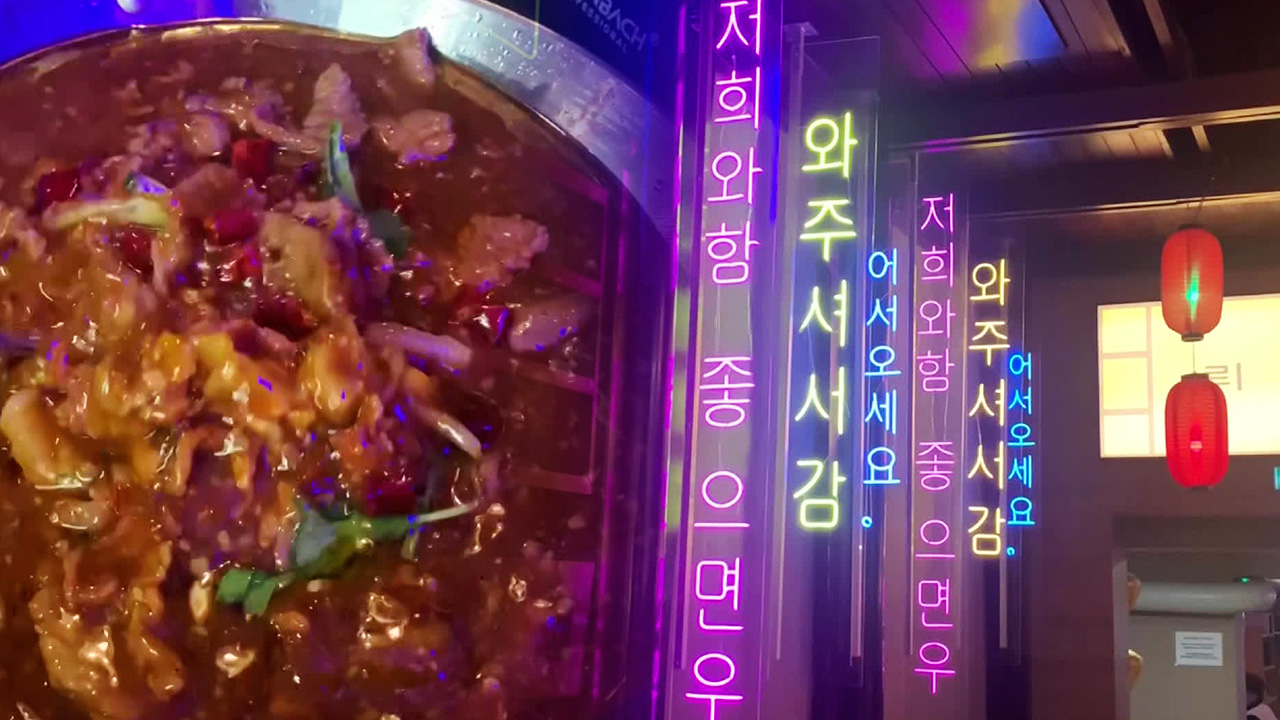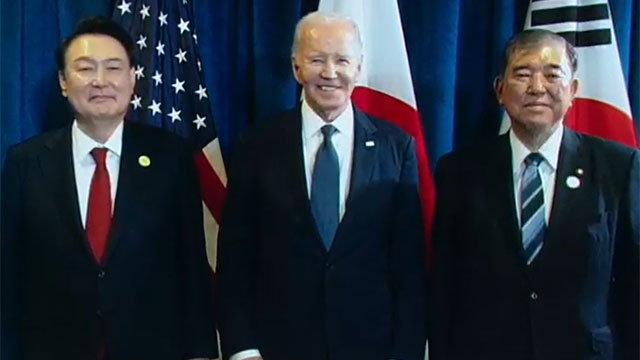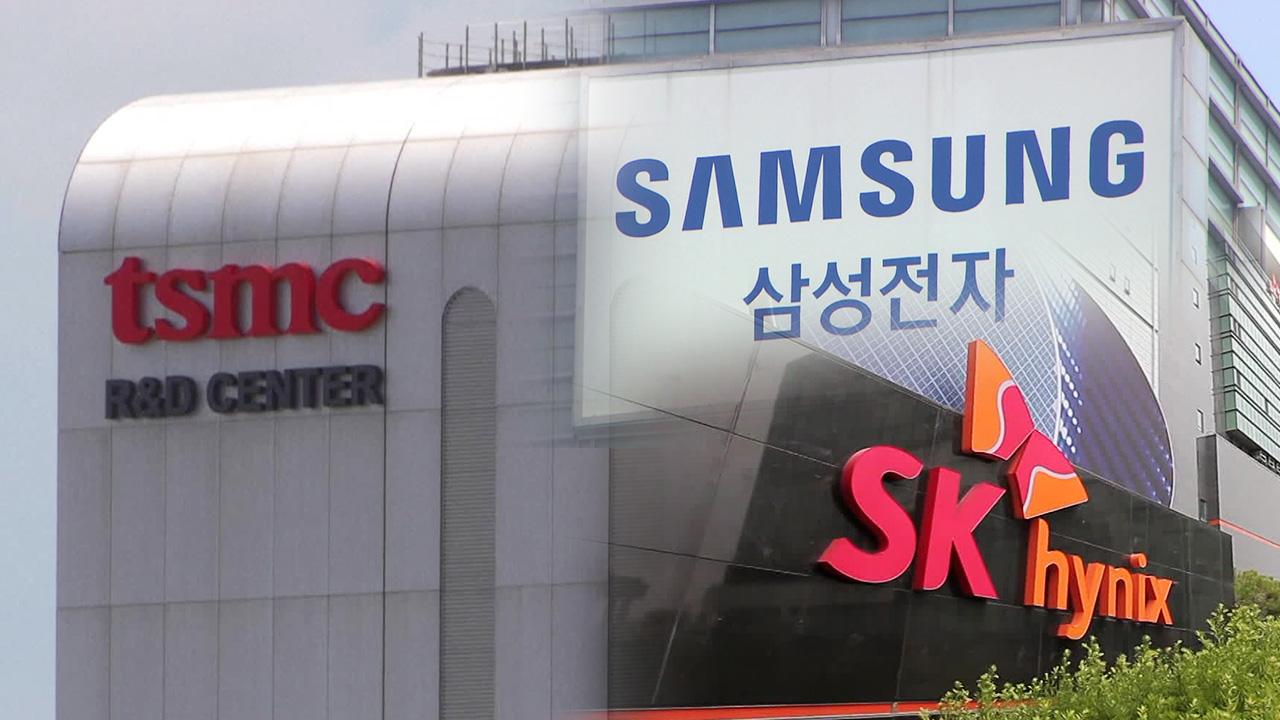Challenge of preserving the identity of Korean cuisine rises as France sees surge of unidentifiable food labeled to be Korean food
입력 2024.11.17 (00:49)
읽어주기 기능은 크롬기반의
브라우저에서만 사용하실 수 있습니다.
[Anchor]
In the gourmet country of France, Korean food is currently gaining great popularity, leading to an increase in Korean restaurants.
However, there is a growing problem with restaurants run by Chinese individuals selling unidentified food as Korean cuisine.
This is reporter Ahn Da-young from Paris.
[Report]
A Korean restaurant in Paris.
Dishes like chicken, tteokbokki, and ramen are popular.
[Swedena Siri/Korean Restaurant Customer: "My favorite food is seasoned chicken. I like it because it's spicy."]
K-Food, which was once represented by bibimbap and bulgogi, is now more diverse and easily accessible as street food.
As Korean cuisine gains popularity, the number of Korean restaurants operated by Chinese individuals is also significantly increasing.
In particular, they are expanding their presence in major commercial areas of Paris by leveraging massive capital to increase chain locations.
I visited a Korean restaurant run by Chinese individuals that has three chain locations.
The neon sign in Hangul is brightly decorated, but the word spacing is a mess, and there are incomprehensible typos.
I ordered spicy beef bulgogi and a menu item labeled 'Seoul-style noodles'.
At first glance, it looks nothing like Korean food.
["This just looks like Chinese food. (It has cilantro and cucumber in it.)"]
Of course, the taste is closer to Chinese cuisine.
["It tastes a bit like Chinese dan dan noodles."]
Another restaurant that is popular among locals.
When I ordered sundubu and kimchi jjigae, they looked similar on the surface, but the taste was completely different.
[Lee Yong-kyung/President of the French Korean Cuisine Association: "The fermented kimchi is a bit sour. (Chinese people) add vinegar to it. The sauce is made with Chinese soy sauce..."]
Reviews from netizens describe the food as unidentifiable.
In particular, there is a significant risk that people trying this food for the first time may misconstrue it as Korean cuisine.
Japan, which has had similar experiences in the past, has implemented a certification system for overseas Japanese restaurants that adhere to original cooking methods.
In the midst of the K-food wave, preserving the identity of Korean cuisine has become a new challenge.
This is Ahn Da-young reporting for KBS News from Paris.
In the gourmet country of France, Korean food is currently gaining great popularity, leading to an increase in Korean restaurants.
However, there is a growing problem with restaurants run by Chinese individuals selling unidentified food as Korean cuisine.
This is reporter Ahn Da-young from Paris.
[Report]
A Korean restaurant in Paris.
Dishes like chicken, tteokbokki, and ramen are popular.
[Swedena Siri/Korean Restaurant Customer: "My favorite food is seasoned chicken. I like it because it's spicy."]
K-Food, which was once represented by bibimbap and bulgogi, is now more diverse and easily accessible as street food.
As Korean cuisine gains popularity, the number of Korean restaurants operated by Chinese individuals is also significantly increasing.
In particular, they are expanding their presence in major commercial areas of Paris by leveraging massive capital to increase chain locations.
I visited a Korean restaurant run by Chinese individuals that has three chain locations.
The neon sign in Hangul is brightly decorated, but the word spacing is a mess, and there are incomprehensible typos.
I ordered spicy beef bulgogi and a menu item labeled 'Seoul-style noodles'.
At first glance, it looks nothing like Korean food.
["This just looks like Chinese food. (It has cilantro and cucumber in it.)"]
Of course, the taste is closer to Chinese cuisine.
["It tastes a bit like Chinese dan dan noodles."]
Another restaurant that is popular among locals.
When I ordered sundubu and kimchi jjigae, they looked similar on the surface, but the taste was completely different.
[Lee Yong-kyung/President of the French Korean Cuisine Association: "The fermented kimchi is a bit sour. (Chinese people) add vinegar to it. The sauce is made with Chinese soy sauce..."]
Reviews from netizens describe the food as unidentifiable.
In particular, there is a significant risk that people trying this food for the first time may misconstrue it as Korean cuisine.
Japan, which has had similar experiences in the past, has implemented a certification system for overseas Japanese restaurants that adhere to original cooking methods.
In the midst of the K-food wave, preserving the identity of Korean cuisine has become a new challenge.
This is Ahn Da-young reporting for KBS News from Paris.
■ 제보하기
▷ 카카오톡 : 'KBS제보' 검색, 채널 추가
▷ 전화 : 02-781-1234, 4444
▷ 이메일 : kbs1234@kbs.co.kr
▷ 유튜브, 네이버, 카카오에서도 KBS뉴스를 구독해주세요!
- Challenge of preserving the identity of Korean cuisine rises as France sees surge of unidentifiable food labeled to be Korean food
-
- 입력 2024-11-17 00:49:24

[Anchor]
In the gourmet country of France, Korean food is currently gaining great popularity, leading to an increase in Korean restaurants.
However, there is a growing problem with restaurants run by Chinese individuals selling unidentified food as Korean cuisine.
This is reporter Ahn Da-young from Paris.
[Report]
A Korean restaurant in Paris.
Dishes like chicken, tteokbokki, and ramen are popular.
[Swedena Siri/Korean Restaurant Customer: "My favorite food is seasoned chicken. I like it because it's spicy."]
K-Food, which was once represented by bibimbap and bulgogi, is now more diverse and easily accessible as street food.
As Korean cuisine gains popularity, the number of Korean restaurants operated by Chinese individuals is also significantly increasing.
In particular, they are expanding their presence in major commercial areas of Paris by leveraging massive capital to increase chain locations.
I visited a Korean restaurant run by Chinese individuals that has three chain locations.
The neon sign in Hangul is brightly decorated, but the word spacing is a mess, and there are incomprehensible typos.
I ordered spicy beef bulgogi and a menu item labeled 'Seoul-style noodles'.
At first glance, it looks nothing like Korean food.
["This just looks like Chinese food. (It has cilantro and cucumber in it.)"]
Of course, the taste is closer to Chinese cuisine.
["It tastes a bit like Chinese dan dan noodles."]
Another restaurant that is popular among locals.
When I ordered sundubu and kimchi jjigae, they looked similar on the surface, but the taste was completely different.
[Lee Yong-kyung/President of the French Korean Cuisine Association: "The fermented kimchi is a bit sour. (Chinese people) add vinegar to it. The sauce is made with Chinese soy sauce..."]
Reviews from netizens describe the food as unidentifiable.
In particular, there is a significant risk that people trying this food for the first time may misconstrue it as Korean cuisine.
Japan, which has had similar experiences in the past, has implemented a certification system for overseas Japanese restaurants that adhere to original cooking methods.
In the midst of the K-food wave, preserving the identity of Korean cuisine has become a new challenge.
This is Ahn Da-young reporting for KBS News from Paris.
In the gourmet country of France, Korean food is currently gaining great popularity, leading to an increase in Korean restaurants.
However, there is a growing problem with restaurants run by Chinese individuals selling unidentified food as Korean cuisine.
This is reporter Ahn Da-young from Paris.
[Report]
A Korean restaurant in Paris.
Dishes like chicken, tteokbokki, and ramen are popular.
[Swedena Siri/Korean Restaurant Customer: "My favorite food is seasoned chicken. I like it because it's spicy."]
K-Food, which was once represented by bibimbap and bulgogi, is now more diverse and easily accessible as street food.
As Korean cuisine gains popularity, the number of Korean restaurants operated by Chinese individuals is also significantly increasing.
In particular, they are expanding their presence in major commercial areas of Paris by leveraging massive capital to increase chain locations.
I visited a Korean restaurant run by Chinese individuals that has three chain locations.
The neon sign in Hangul is brightly decorated, but the word spacing is a mess, and there are incomprehensible typos.
I ordered spicy beef bulgogi and a menu item labeled 'Seoul-style noodles'.
At first glance, it looks nothing like Korean food.
["This just looks like Chinese food. (It has cilantro and cucumber in it.)"]
Of course, the taste is closer to Chinese cuisine.
["It tastes a bit like Chinese dan dan noodles."]
Another restaurant that is popular among locals.
When I ordered sundubu and kimchi jjigae, they looked similar on the surface, but the taste was completely different.
[Lee Yong-kyung/President of the French Korean Cuisine Association: "The fermented kimchi is a bit sour. (Chinese people) add vinegar to it. The sauce is made with Chinese soy sauce..."]
Reviews from netizens describe the food as unidentifiable.
In particular, there is a significant risk that people trying this food for the first time may misconstrue it as Korean cuisine.
Japan, which has had similar experiences in the past, has implemented a certification system for overseas Japanese restaurants that adhere to original cooking methods.
In the midst of the K-food wave, preserving the identity of Korean cuisine has become a new challenge.
This is Ahn Da-young reporting for KBS News from Paris.
-
-

안다영 기자 browneyes@kbs.co.kr
안다영 기자의 기사 모음
-
이 기사가 좋으셨다면
-
좋아요
0
-
응원해요
0
-
후속 원해요
0















이 기사에 대한 의견을 남겨주세요.